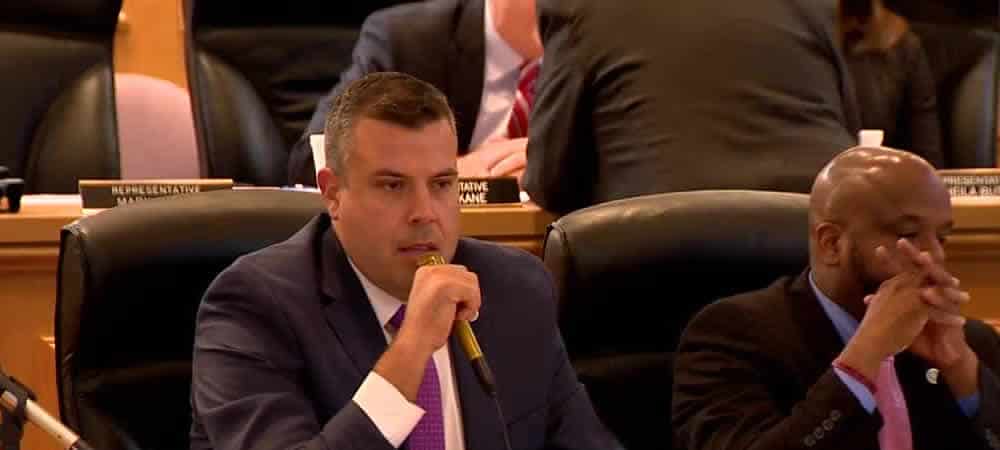- Tennessee legislators are at a seeming impasse regarding how to move forward with sports betting legalization.
- TN HB 1 has seen strange revisions and amendments, including banning brick-and-mortar betting venues.
- Some Tenn. Lawmakers even suggest banning wagering on Sundays and holidays.
NASHVILLE, Tenn. – Tennessee House Bill 1 has been in committee for months, and the legislation has again been delayed. The proposal, which would legalize sports wagering in the state, has been controversial, as have its amendments to date.
During a hearing on Tuesday, March 26, HB 1 was effectively put on the House’s back burner by a vote of 13-3. Putting the bill to the “heel of the calendar” (i.e. the back of the line) was seen by some as a death knell for the legislation’s 2019 prospects.
However, a new hearing considering HB 1 is slated for Tuesday, so there’s still a chance that some sort of single-game sports wagering will be legalized in Tennessee this year.
In the Tennessee Senate, HB 1’s analog – SB 16 – is also being considered, though it has met similar resistance. The main hurdle in Tennessee seems predicated on logistics, though various lawmakers have expressed “integrity” and “morality” concerns, as well.
No Brick-And-Mortar Betting
The most interesting aspect of HB 1 lies in its recent amendment that removed retail betting from the equation.
In most states, retail brick-and-mortar sportsbooks are considered to be a universal first step in establishing sports wagering in general. Tennessee would buck that trend by barring retail operators and going all-in on mobile sports wagering.
Limiting the new laws to mobile, Internet-based Tennessee sports betting would also obviate the forming of a new state agency to administer the pastime. Instead of being overseen by a state gaming commission, the Tennessee Lottery – which already operates online – would manage sports wagering.
Knoxville Rep. Jason Powell (D) is pushing to reinsert retail sports betting, though any physical wagering locations would be limited to the larger metro areas in the state.
Powell also wants to reduce the sportsbook license fee from $750,000 to $75,000, while eliminating the 10-license cap currently in the bill. These proposals were voted against by a bipartisan majority, however, and are no longer being considered.
If HB 1 remains limited to the Internet and is overseen by the state lotto, the lottery fund would get 85% of any revenue generated. Local governments would receive the remaining 15% to use at their discretion.
Integrity Fees And Official Data
Despite the various roadblocks so far, Tennessee has made progress on its attitude towards two of the more controversial and widespread sports betting initiatives: integrity fees and so-called “official data.”
One of the largest lobbyists for sports wagering in the Volunteer State is the University of Tennessee. The college believes that any sports wagering legislation needs to have a safety net in place to prevent corruption among students and athletes. This would require an “integrity fee.”
University of Tennessee Director of Policy Analysis Josh Warren explained to the state House committee that a random student might see a student-athlete in a cast and use that allegedly non-public information to place an unfair wager.
Given the NCAA’s injury-reporting requirements, such a concern seems far-fetched. As such, the House committee – at least for now – has dismissed the idea.
Proposals to use “official data” provided by sports leagues has met an even sterner dismissal, failing to find any traction whatsoever in committee.
Morality Concerns: No NFL Betting?
Opponents of legalized sports betting in Tennessee have also demurred on morality grounds. Representative Johnny Shaw (D) is deeply concerned.
“Folks are going to be sitting up in church on Sunday, and everywhere else, they’re going to be playing. … The state of Tennessee, if we can save one person, it’s much more important than making a million dollars, is the way I see this.”
Republican Rep. Rush Bricken agrees, stating that Congress would be “remiss…to get this legislation all the way through without serious additional money for gambling addiction.”
Doubling down on the morality platform, proponents of HB 1 have recently suggested a baffling measure that would bar sports wagering on Sundays from 3 p.m. to 10 p.m.
This would effectively prevent Tennessee bettors from wagering on about 60% of NFL games, which are by far the most lucrative and popular contests for sportsbooks nationwide.
The proposed amendment would also bar sports wagering on major religious and state holidays like Christmas, Easter, and Thanksgiving, though the rationale for this was not expounded on.
Amazingly, these unprecedented restrictions were nearly adopted, losing out by a final committee vote of only 10 nays to 9 yeas.
It remains unknown exactly what the final Tennessee sports wagering legislation will include. It is also far from a sure thing that the state will pass any such legislation at all in the final few weeks of the current legislative session.
Advertising Disclosure
In order to provide you with the best independent sports betting news and content LegalSportsBetting.com may receive a commission from partners when you make a purchase through a link on our site.
News tags: Tennessee | Tennessee sports betting | TN HB 1 | TN SB 16

Andy has been writing professionally for nearly two decades, with the last three years being dedicated to his primary passions: sports wagering news and gambling industry analyses. A walk-on punter, Andy has a particular interest in professional football, baseball, and horse racing betting. Come early May, you can always catch Andy – clad in all white, mint julep in hand – on Millionaires Row at Churchill Downs. In his dreams.


 College Football Betting
College Football Betting Best Online Sports Betting
Best Online Sports Betting Best Legal NFL Betting
Best Legal NFL Betting States With Legal Sports Betting
States With Legal Sports Betting Sports Betting Events
Sports Betting Events




